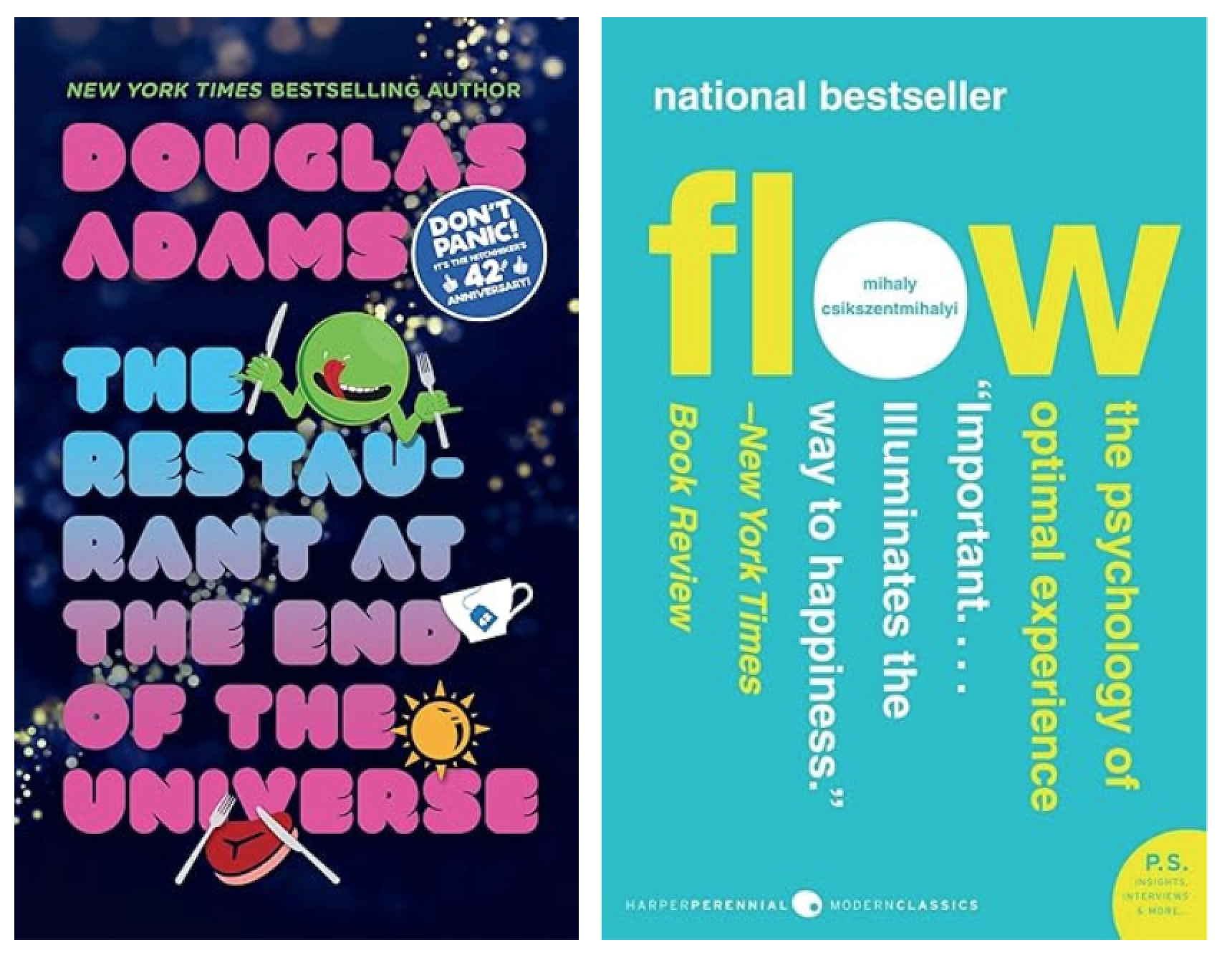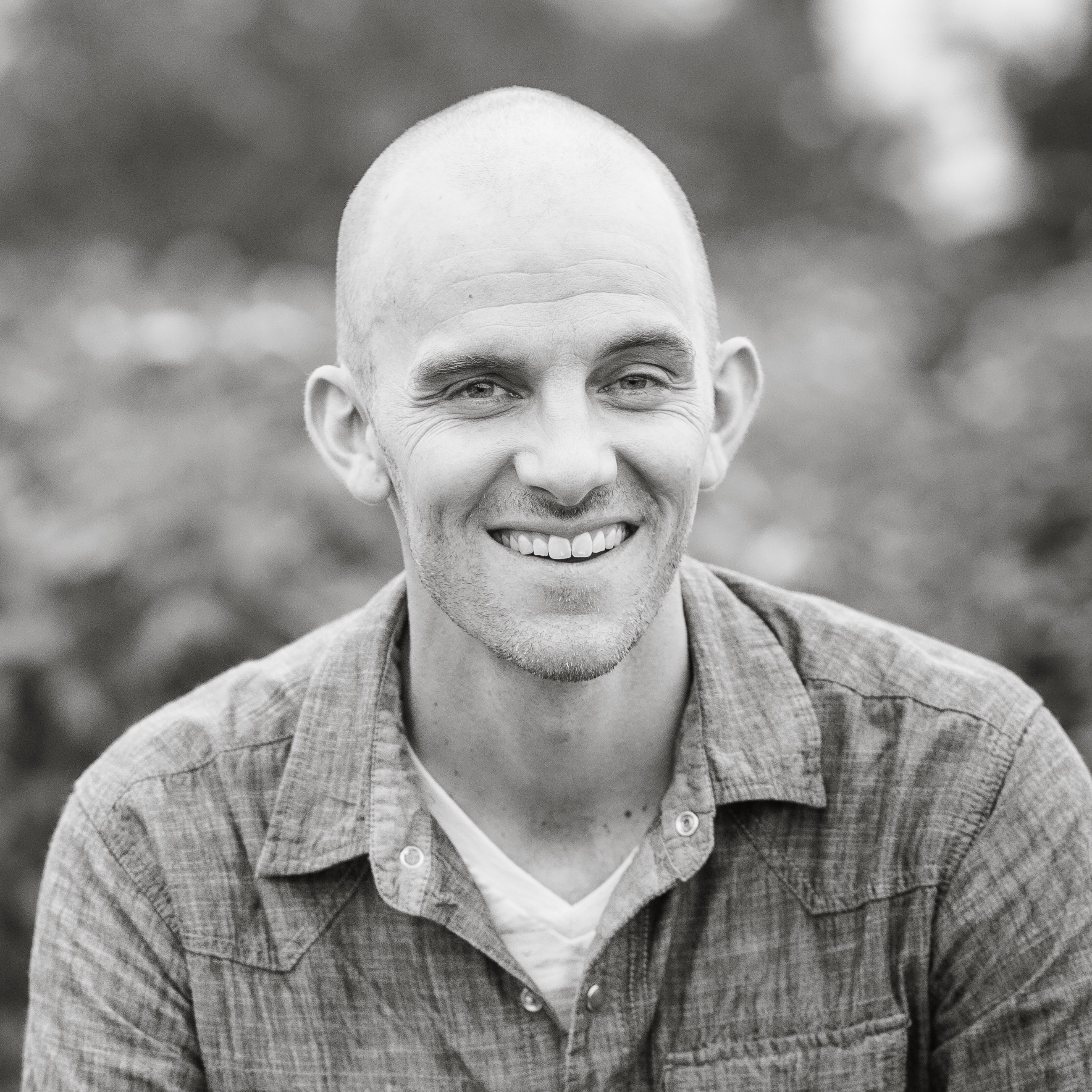In the Sci-Fi comedy The Restaurant at the End of the Universe, a wife argues with her husband and tells him to get a sense of perspective. Just to spite her, the husband goes ahead and creates the Total Perspective Vortex—an unbearable room that shows visitors their incredible smallness in relation to the incomprehensible vastness of the universe—to prove that the one thing we simply cannot live with is a sense of perspective. The room ends up frying his wife’s mind, which saddens the husband, but also satisfies him that he’s at least proven his point.
In last week’s newsletter, I wrote about Mihaly Csikszentmihalyi’s book Flow: The Psychology of Optimal Experience. I was reading The Restaurant at the End of the Universe—and had just gotten to the part about the Total Perspective Vortex—when I started Flow, so I laughed when I saw how Csikszentmihalyi kicked off his book by framing human dissatisfaction from a universal perspective. In a section called “The Roots of Discontent,” he writes:
The motions of stars, the transformations of energy that occur in it might be predicted and explained well enough. But natural processes do not take human desires into account. They are deaf and blind to our needs, and thus they are random in contrast with the order we attempt to establish through our goals. A meteorite on a collision course with New York City might be obeying all the laws of the universe, but it would still be a damn nuisance. The virus that attacks the cells of a Mozart is only doing what comes naturally, even though it inflicts a grave loss on humankind. ‘The universe is not hostile, nor yet is it friendly,’ in the words of J.H. Holmes. ‘It is simply indifferent.’
The universe is big, chaotic, and for all practical purposes, does not care about our happiness. In fact, much of the enjoyment we experience in life, is the result of our ability to create order in the midst of the chaos. Csikszentmihalyi argues that culture, religion, work, and any personal goals we might have for how we use our time on this earth are all attempts to bring psychological order to our sense of self and prevent chaos from unraveling it—what he calls “psychic entropy.” He goes on to write:
How we feel about ourselves, the joy we get from living, ultimately depend directly on how the mind filters and interprets everyday experiences. Whether we are happy depends on inner harmony, not on the controls we are able to exert over the great forces of the universe.
And that’s just it—it comes down to what we have the ability to control. Csikszentmihalyi concludes the section by describing the kinds of people who are able to improve their quality of life through the flow experiences that result from an appropriate focus on what they can control:
Such individuals lead vigorous lives, are open to a variety of experiences, keep on learning until the day they die, and have strong ties and commitments to other people and to the environment in which they live. They enjoy whatever they do, even if tedious or difficult; they are hardly ever bored, and they can take in stride anything that comes their way. Perhaps their greatest strength is that they are in control of their lives.
The one thing we can truly control is ourselves. That’s a perspective we can maybe all agree on, both husband and wife.
Then again, when it comes to having a universal perspective, recent research suggests that maybe the husband was wrong after all. It wouldn’t be the first time.

